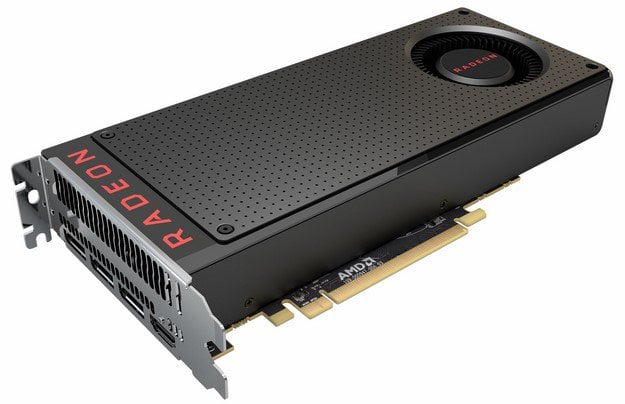Leaked Radeon RX 480 Benchmark Shows VR Prowess At $199
It's a great time to be a gamer on the PC platform. First NVIDIA flipped the enthusiast market upside down with its first Pascal cards, the GeForce GTX 1080 and GeForce GTX 1070, both of which beat Titan X for less money. And not to be overshadowed, AMD responded with its first Polaris part, the Radeon RX 480, a powerful card that belies its $199 price tag. But just how powerful is it? A leaked benchmark gives us a clue.

Reviews of the Radeon RX 480 will splash the web once the NDA lifts, but until then, all we've had to go on were the specs AMD provided and a single internal benchmark, Ashes of The Singularity, which according to AMD has two Radeon RX 480 graphics cards averaging 62.5 frames per second, compared to a single (and more expensive) GeForce GTX 1080 running at 58.7 frames per second. Good stuff, though did AMD cherry pick a DirectX 12 benchmark to show the Radeon RX 480 in the best light possible? Maybe not.

Futuremark's database for 3DMark 11 shows an entry that appears to be a single Radeon RX 480 graphics card paired with an Intel Core i7-4770 scoring 14,461 in the Performance run. Assuming that's the case, it bodes well both for AMD's Polaris architecture and for gamers looking to dive into VR gaming without investing heavily in a GPU.
A score of 14,461 indicates a card that's fast enough for VR, and as we already know, it carries an MSRP of just $199, hitting the so-called "sweet spot" in gaming. The score is also within striking distance of a Radeon R9 390X, but at almost half the TDP (150W versus 275W) and much less coin. That's a win no matter how you slice it.
What makes this even more impressive is that AMD has yet to introduce a flagship graphics card based on Polaris. The Radeon RX 480 isn't intended to fill that role—it's a mid-range card at a tantalizing price point, and we suspect it won't sit on store shelves long enough to collect a single spec of dust.


Futuremark's database for 3DMark 11 shows an entry that appears to be a single Radeon RX 480 graphics card paired with an Intel Core i7-4770 scoring 14,461 in the Performance run. Assuming that's the case, it bodes well both for AMD's Polaris architecture and for gamers looking to dive into VR gaming without investing heavily in a GPU.
A score of 14,461 indicates a card that's fast enough for VR, and as we already know, it carries an MSRP of just $199, hitting the so-called "sweet spot" in gaming. The score is also within striking distance of a Radeon R9 390X, but at almost half the TDP (150W versus 275W) and much less coin. That's a win no matter how you slice it.
What makes this even more impressive is that AMD has yet to introduce a flagship graphics card based on Polaris. The Radeon RX 480 isn't intended to fill that role—it's a mid-range card at a tantalizing price point, and we suspect it won't sit on store shelves long enough to collect a single spec of dust.

